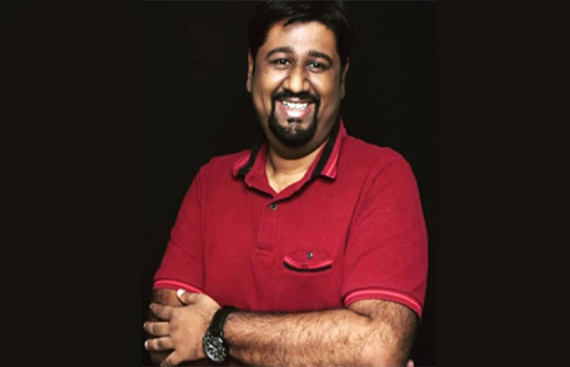Mastering Agile Leadership: Insights from Award-Winning Agile Coach Siddhesh Dongare

Coaching has proven to be a powerful tool for enhancing business performance, boosting employee motivation, and increasing engagement. According to the U.S. Bureau of Justice, businesses that incorporate coaching alongside training see a significant 80% boost in employee productivity. Agile coaching, in particular, plays a vital role in enabling individuals to refine their skills, embrace effective practices, and tackle challenges like motivation and dedication. This approach fosters continuous improvement and empowers teams to adapt swiftly to evolving demands in the workplace.
Megha Jain: Can you tell us about your background?
Siddhesh Dongare: My name is Siddhesh Dongare, and I currently work as a Product Manager at Mastercard Open Banking Business. I have accumulated over ten years of experience in product and project management, during which I have developed a strong skill set in leading teams and successfully delivering projects.
I am an accomplished Agile coach and have devised the Agile Iteration for Data Mining (AIP-DM) methodology. My contributions were recognized when I was awarded the prestigious Agile Coach of the Year accolade at the India Agile Awards 2024, hosted by UNICOM in Bangalore. This award underscores my commitment to promoting excellence in Agile practices within the industry.
Furthermore, I am a published author known for the book "Shape Your Life by Changing Perspective," which focuses on personal growth and transformation. I am delighted to share that I was honoured as the winner of the Business Mint Nationwide Awards Under 40 Entrepreneurs & Industry Experts in 2024 for my work on the book "Shape Your Life by Changing Perspective." My recent recognition as Agile Coach of the Year at the India Agile Awards 2024 highlights my dedication to advancing Agile methodologies in the professional sphere.
Megha Jain: What made you want to get into Agile coaching?
Siddhesh Dongare: Since 2008, I have been teaching IT subjects at Satyam InfoTech, a computer institute in Kalyan, and mentoring students for their career growth. My passion for teaching and mentoring naturally led me to Agile coaching. Transitioning into coaching in the corporate world allows me to apply a more hands-on approach. In 2014, I was honoured as the "Most Agile Employee of the Year" by the company, an accolade that further fuelled my commitment to Agile coaching. Overall, my passion for Agile coaching is grounded in the belief that it can catalyse positive change, enabling organizations to become more resilient, responsive, and successful in today's rapidly changing business landscape.
Megha Jain: What challenges have you faced as an Agile coach? How did you overcome it?
Siddhesh Dongare: As an Agile coach, I faced various challenges, outlined below, along with how I addressed them:
- Lack of Understanding of Agile Principles and Methodology
- Resistance to Change without Understanding Different Perspective
- Confusion Between Roles and Responsibilities
- Ignoring Company Culture while Solving Issues
- Unclear Communication
- Lack of Understanding the Difference Between Waterfall and Agile Approach
As an Agile coach, I addressed these challenges by employing a combination of communication, education, and fostering a culture of collaboration, with the mindset that Agile transformation is an ongoing process requiring patience, persistence, and a commitment to continuous improvement.
Megha Jain: What makes you a great agile coach? How would you motivate your Agile team?
Siddhesh Dongare: Honestly, I may not have all the answers to what makes a great Agile coach, but based on feedback from internal stakeholders and respected professionals who know me well, it appears that I am recognized as a skilled Agile coach. I believe it's because I consistently focus on learning, pay close attention, listen well, approach problem solving through a cultural lens, and communicate effectively. It feels good to be acknowledged for these qualities as a great Agile coach.
To keep the Agile team motivated, I organize regular activities such as 'thought of the day,' puzzle-solving sessions, and 'Chai Pe Charcha' (Tea Time Discussions) to boost team morale. Motivating the team involves understanding their personal and collective goals. As an Agile coach, I always prioritize building trust, fostering open communication, and instilling a sense of purpose. By aligning individual goals with project objectives, recognizing achievements, and promoting a culture of continuous improvement, I inspire the team to collaborate and deliver high-quality results.
Megha Jain: What are some examples of procedures that have been implemented to ensure high-quality results?
Siddhesh Dongare: I consistently pushed for both individual and team adherence to a 'no mediocrity policy' for work deliverables, reinforcing the commitment to delivering high-quality outcomes. This involved focusing on quality over quantity and maintaining a low bug count. I consistently conducted regular retrospectives where the team reflected on their performance, identified areas for improvement, and implemented necessary changes; it was a standard practice. I regularly organized activities such as 'thought of the day,' puzzle-solving sessions, and 'Chai Pe Charcha' (Tea Time Discussions) to boost team morale. I always promoted a culture of continuous improvement by recognizing achievements and encouraging the team to learn from both successes and challenges.
Megha Jain: What would you recommend to aspiring Agile coaches or those interested in Agile leadership?
Siddhesh Dongare: To excel in Agile coaching or leadership, embrace responsibility and ownership. Encourage team members to take charge, fostering empowerment and accountability. Promote collaboration through open communication and mutual respect. Emphasize learning from mistakes and adapting based on feedback. Ensure clear and documented communication to avoid misunderstandings. Encourage flexibility to respond to changing circumstances. Lead by example as a servant-leader, supporting the team and facilitating improvement. Continuously learn and develop to stay updated and promote a culture of learning within the team. These principles will guide you towards success in Agile environments, fostering collaboration and adaptability.
Social Media Link
1. https://www.linkedin.com/in/agile-practitioner-coach/
